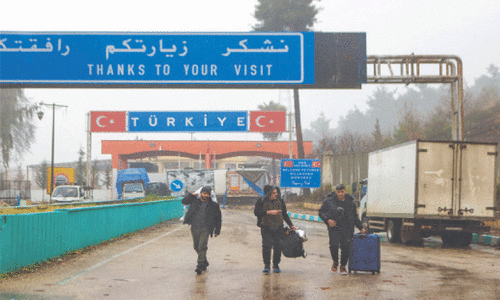The world is building up into war mode. Global tension is reaching fever pitch.
The other day India displayed its defence prowess by successfully test firing a new long-range missile. It demonstrated that the country has joined the league of nuclear powerhouses.
”This launch has given a message to the entire world that India has the capability to design, develop, build and manufacture missiles of this class, and we are today a missile power,” said VK Saraswat, head of India’s Defence Research and Development Organisation (DRDO), which developed and manufactured the missile.
Most international news agencies reported that India’s new missile is capable of delivering a one-ton nuclear warhead to anywhere in rival China.
But would China be a real target of India’s missiles in the event of wider regional or global conflict? China sought to play down the missile threat from India. Liu Weimin, a spokesman from the Chinese Foreign Ministry, said China and India are not rivals but cooperative partners. China believes the two countries should “cherish the hard-won momentum of sound bilateral relations” and “make active contributions to regional peace and security”, Liu said in a briefing in Beijing.
India and China might be facing off as traditional rivals in this region, but it does not necessarily follow that they would go to war against each other in any future global conflict. Both India and China have populations of more than 1.2 billion each. In the event of a conflict in the Middle East between Iran and Israel, China is certain to back Iran, as judged by its political stance so far.
So is Russia, another global nuclear power, which has warned Nato over its possible war plan against Iran. India’s position on the Israel-Iran conflict is ambiguous, but it is more likely that it would want to join the Sino-Russian “alliance” to support Iran should the diplomatic conflict degenerate into a war. If this were the case, India’s missiles would not be aimed at targets in China, as widely reported by the international wire services.
Iran’s survival depends on whether it can rally support from the Arab world. Iran might not have nuclear capability as yet, but its long-range missiles could cause damage in Israel.
In the meantime, Israel has been stepping up its preparations for a possible military conflict with Iran via its formidable air force. Israel has no doubt already devised plans to attack alleged nuclear facilities in Iran in a pre-emptive strike. Iran, which is suffering under international sanctions, has threatened to retaliate if it is attacked first.
Nato’s strategy, which supports Israel, is to split the alliances within the Arab world, whose total population is about the same as India’s and China’s 1.2 billion.
The question is who would strike first?
China has also beefed up its defences. It has announced a plan to hold a joint military exercise with Russia. “The joint exercises will strengthen the naval forces’ ability to jointly confront new regional threats and demonstrate their confidence to maintain peace and stability in the region and world,” Chen Bingde, chief of staff of the People’s Liberation Army, said in a statement on the Defence Ministry website.
The drills will focus on joint maritime defence and protection of navigation, and will involve 16 Chinese ships and two submarines, and four vessels from Russia’s Pacific Fleet, as well as Russian warplanes and naval infantry, the statement said.
Apparently, China’s joint military exercise with Russia is a response to the Philippines’ military cooperation with the US and Vietnam. The US is hoping to contain China by installing a base in Australia, and by strengthening naval cooperation with the Philippines and Vietnam.
North Korea is a wild card in this global conflict. Its recent rocket/long-range missile test was a failure, though it caused widespread concern among countries in the region, particularly South Korea and Japan. Though the US and United Nations have condemned North Korea’s actions, the pariah state has vowed to carry out similar tests again.
Meantime, Thailand is too busy with pornography in Parliament, another round of constitutional amendments, Thaksin Shinawatra’s singing of “Let It Be” in Siem Riep, an earthquake scare in Phuket, the 300 baht minimum wage hike and the rising cost of living to really understand what is going on around the world.
By arrangement with The Nation/ANN












































Dear visitor, the comments section is undergoing an overhaul and will return soon.